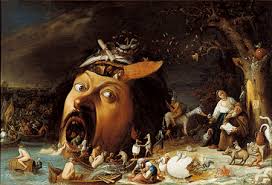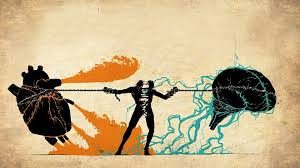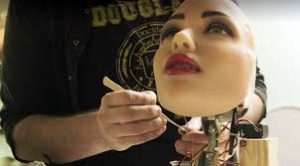Why do we have laws? Are laws made to protect life, to protect property, to establish order, to punish transgressors? Are laws made to protect man from his own cunning and chicanery? In short, are laws made to protect man/woman from his/her own “basically criminal nature”? In today’s society, we use lawyers like personal-injury-lawyers to handle cases and uphold the law for us all.
When someone breaks those laws, we move towards litigation attorneys handling business litigation, or other legal areas. This is the status quo we have made, and that we are used to.
Moreover, put simply, criminal lawyers are responsible for either prosecuting or defending someone accused of a criminal offense. They are required to act in a neutral, impartial manner to ensure that the legal rights of those prosecuted are upheld so that they receive fair treatment against the conduct of the law. If you would like more information about the responsibilities of criminal-lawyers is home to some brilliant law firms and you can find plenty of useful resources on their websites.
So, that being said, are laws made to protect man and woman from the self as it is generally outlined by Freud and Darwin? Man and woman had laws, however, far earlier. Are laws made then to protect man and woman from his and her “sinful nature”? If we were all “perfect beings,” would we need laws at all? Do laws define what is unacceptable, or do they hint of some perhaps undifferentiated, barely sensed, more positive issues? Are laws an attempt to limit impulses? Do they represent society’s mass definitions of what behavior is acceptable and what is not?
What is the difference between a crime and a sin, as most of us think of those terms? Can the state punish us for a sin? It certainly can punish us for a crime. Is the law a reflection of something else– a reflection of man’s and woman’s inherent search toward the ideal, and its actualization? When does the law act as a practical idealist? Why do we sneer so when politicians show their feet of clay?
How does this concern us as an individual? We will start with the individual.
Each individual is innately driven by a good intent, however distorted that intent may become, or however twisted the means that may be taken to achieve it.
As the body wants to grow from childhood on, so all of the personality’s abilities want to grow and evolve. Each person has his or her own ideals, and impulses direct those ideals naturally into their own specific avenues of development — avenues meant to fulfill both the individual and his society. Impulses provide specifications, methods, meanings, definitions. They point toward definite avenues of expression, avenues that will provide the individual with a sense of actualization, natural power, and that will automatically provide feedback, so that the person knows he or she is impressing his or her environment for the better.
Those natural impulses, followed, will automatically lead to political and social organizations that become both tools for individual development and implements for the fulfillment of the society. Impulses then would follow easily, in a smooth motion, from private action to social import. When we are taught to block our impulses, and to distrust them, then our organizations become clogged. We are left with vague idealized feelings of wanting to change the world for the better, for example — but we are denied the personal power of our own impulses that would otherwise help direct that idealism by developing our personal abilities. We are left with an undefined, persisting, even tormenting desire to do good, to change events, but without having any means at our disposal to do so. This leads to lingering frustration, and if our ideals are strong the situation can cause us to feel quite desperate.
We may begin to exaggerate the gulf between this generalized ideal and the specific evidences of man’s and woman’s “greed and corruption” that we see so obviously about us. We may begin to concentrate upon our own lacks, and in our growing sense of dissatisfaction it may seem to us that most men and women are driven by a complete lack of good intent.
We may become outraged, scandalized — or worse, filled with self-righteousness, so that we being to attack all those with whom we do not agree, because we do not know how else to respond to our own ideals, or to our own good intent.
The job of trying to make the world better seems impossible, for it appears that we have no power, and any small private beneficial actions that we can take seem so puny in contrast to this generalized ideal that we dismiss them sardonically, and so we do not try to use power constructively. We do not begin with our own life, with our own job, or with our own associates. What difference can it make to the world if we are a better salesperson, or plumber, or office worker, or car salesman or saleswoman, for Christ’s sake? What can one person do?
Yet that is precisely where first of all we must begin to exert ourselves. There, on our jobs and in our associations, are the places where we intersect with the world. Our impulses directly affect the world in those relationships.
Many of us are convinced that we are not important — and while each of us feels that way it will seem that our actions have no effect upon the world. We will purposefully keep our ideals generalized, thus saving oneself from the necessity of acting upon them in the one way open to us: by trusting oneself and our impulses, and impressing those that we meet in daily life with the full validity that is our own.
Most criminals act out of a sense of despair. Many have high ideals, but ideals that have never been trusted or acted upon. They feel powerless, so that many strike out in self-righteous anger or vengeance against a world that they see as cynical, greedy, perverted. They have concentrated upon the great gaps that seem to exist between their ideals of what man or woman should be, and their ideas of what man or woman is.
On the one hand, they believe that the self is evil, and on the other they are convinced that the self should not be so. They react extravagantly. They often see society as the “enemy” of good. Many — not all, now — criminals possess the same characteristics we ascribe to heroes, except that the heroes have a means toward the expression of idealism, and specific avenues for that expression. And many criminals find such avenues cut off completely.
I do not want to romanticize criminals, or justify their actions. I do want to point out that few crimes are committed for “evil’s sake,” but in a distorted response to the failure of the actualization of a sensed ideal.
So we return to what is the nature of the ideal and the good. Who defines what is right and wrong, legal and illegal?
“The God of me”. No one else is watching what I watch from my personal viewpoint any moment of my day. I feel as if I am being privileged to view a beginning of the world… or of my edge of it.
It is like seeing a new corner of our own psyche, transformed into trees, grass, flowers, sky and fog … I feel as if I am viewing that part of myself that I am always pursuing, the part is as clear-eyed as a child, fleet, at one with its own knowing. That part of us exists apart from our concerns about careers or business (if you are a startup lending-expert a-guide-to-personal-guarantees-on-business-loans most business lenders will want , money, fame, the opinion of family, friends, or the world. It’s our direct connection with the universe, from which we emerge in each moment of our lives.
So, in that moment, I named that part of me the God of Me, and that designation makes senses to me, at least. In those terms, we each have our personal ‘God,’ and I am convinced that the universe knows us no matter who or where — or what — we are. I think there is a God of every individual being, and the each consciousness, regardless of its status, possess this intimate connection with the universe.










